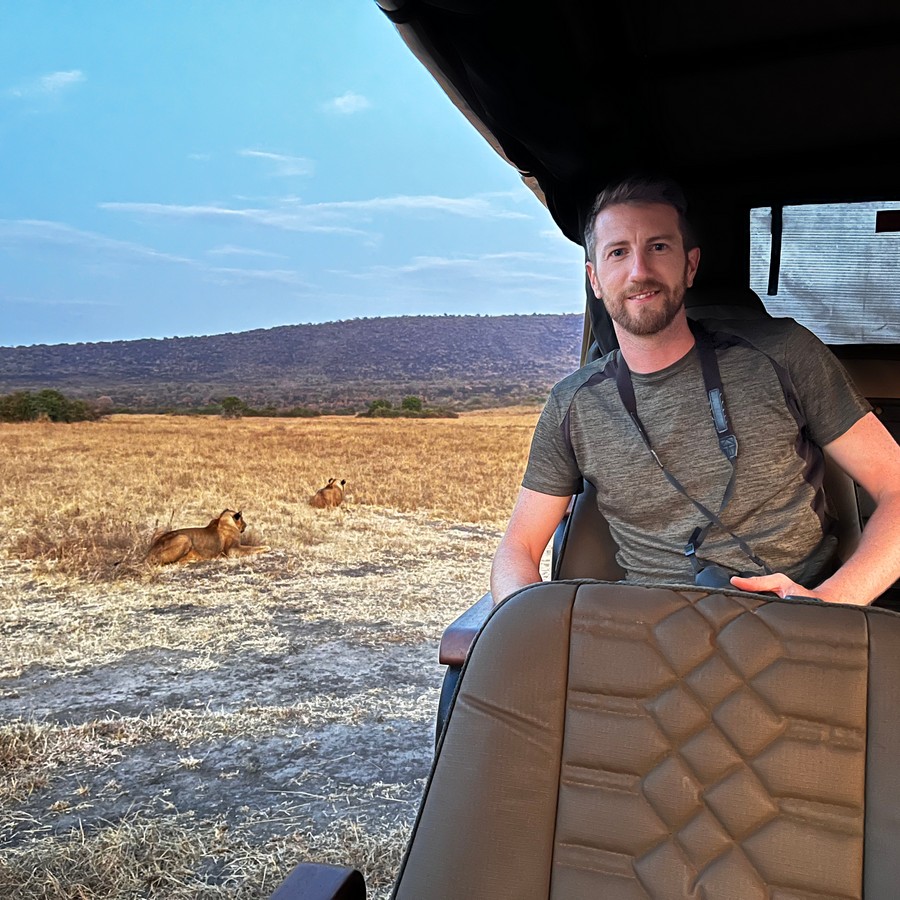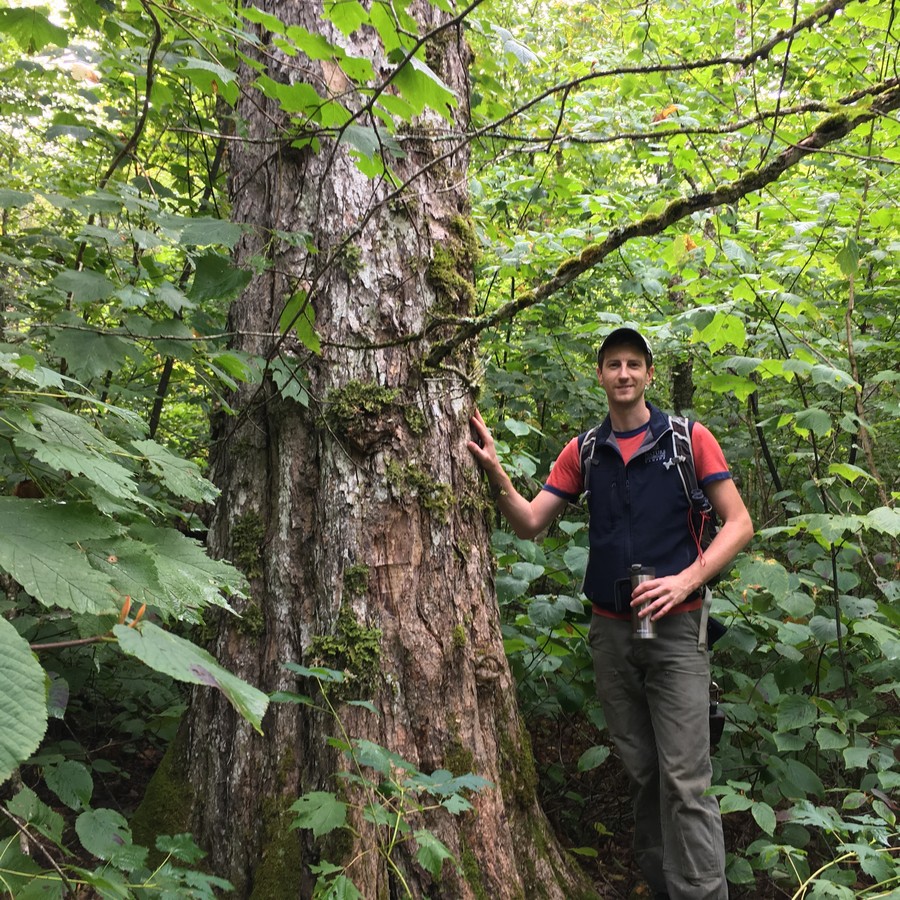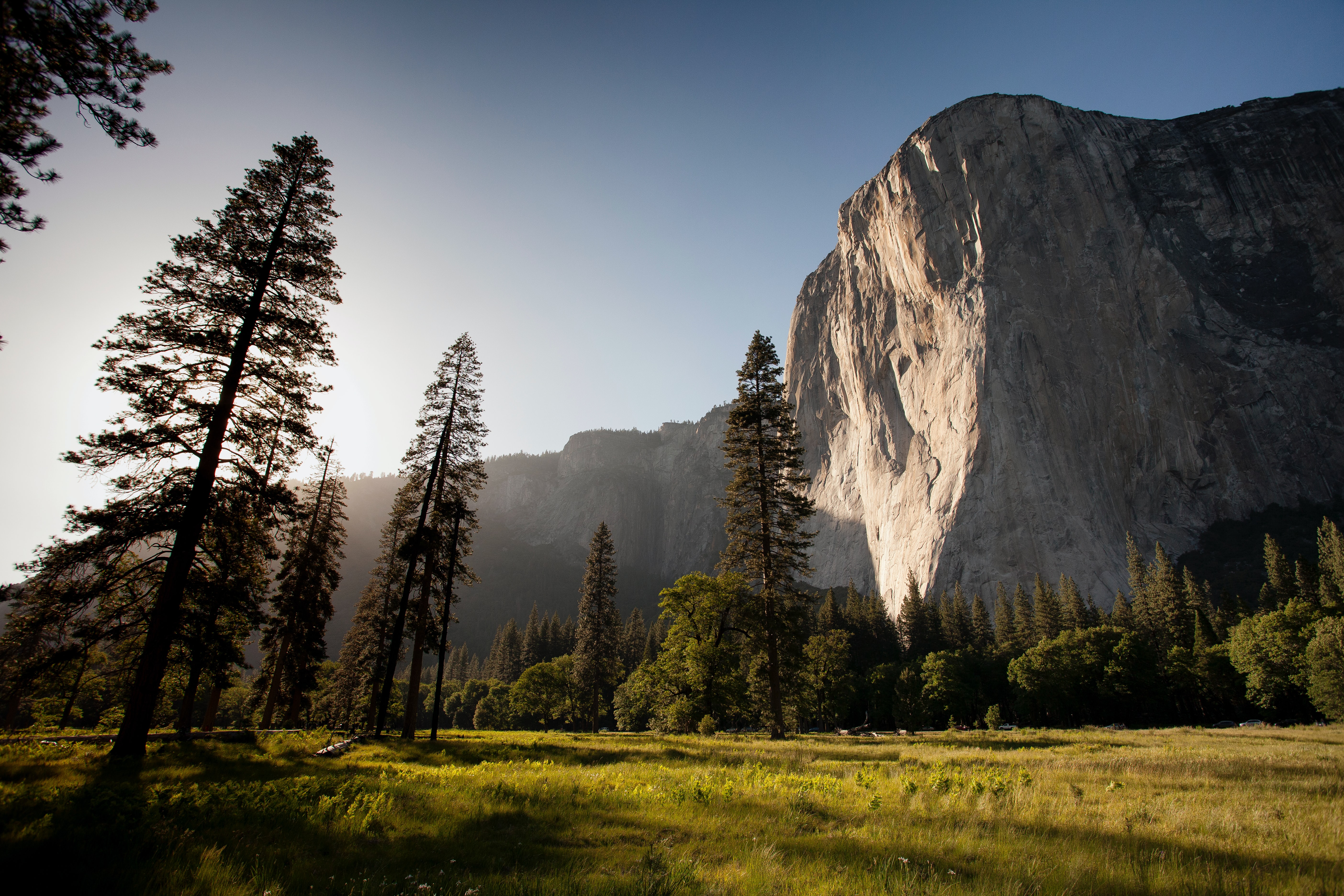A spotlight on the founding director and CEO of Global Conservation Solutions (GCS) and his journey towards helping nearly 300 organizations scale their positive impact for nature and people.

When Josh Noseworthy found himself on the 3,500 km-long Appalachian Trail, he had no idea he would also be starting his influential journey into the world of nature conservation.
If you’ve decided to embark on a hike that lasts several months, dragging your weather-beaten self through merciless terrain, often in solitude for days on end, you likely have a burning motivation.
For Josh, it was a quest for clarity.
Before Josh began his climacteric hike, he had gone through 6 years of forestry school and worked several forestry jobs in both eastern Canada and northern California. A love of the outdoors attracted him to the profession, but his experiences made him acutely aware of a discrepancy between what he had been taught and what was actually happening in the woods, which left him questioning his life path.
“In school, they teach students forest ecology and conservation, but I quickly realized that many management practices being applied were at serious odds with maintaining the web of life that healthy forests support,” Josh says, “That’s not to say that cutting wood is inherently bad. We need wood products, but there are right ways to do it, and wrong ways to do it. In the early stages of my career, I couldn’t have articulated how these practices were contributing to biodiversity loss, but even then, it was obvious to me that the scales were tipped against nature. I just never got comfortable knowing that I was the last person to see and experience a thriving forest community before it was cut down.”

And so, Josh did what many others do when they need to hit the reset button. He went into the woods.
Perhaps it was the refreshing sight of wild, untouched cathedral groves, shielded from modern-day influences. Maybe it was the sounds and smells, reminding him of his childhood affinity for the natural world, nurtured through Reader’s Digest’s “North American Wildlife”, and the joy in searching his backyard for critters. Whatever the reason, the Appalachian Trail gave Josh the epiphany he needed.
“I was sitting by a river thinking about all the incredible places that I had visited and my experiences in nature up until that point. All those experiences coalesced into a realization that conserving the natural world was my true calling. I distinctly remember a sense of peace coming over me like I had finally found my purpose after years of stumbling in the dark.”
From that moment, everything began falling into place.
Almost as soon as he stepped off the trail, Josh was offered an international internship that provided first-hand experience working with endangered species.
“During the training, I was volunteering as an assistant zookeeper. One day, I was preparing some food for the animals when a female Orangutan reached through the bars of her enclosure and grabbed me by the arm. For a moment I thought I was a dead man, but she just sat down, very gently held my hand, and stared straight into my eyes. The whole event only lasted a minute or two before she let go and ambled away. It’s hard to put the experience into words. There was a recognition in those eyes; that we shared a common ancestor was beyond doubt. I can’t explain exactly why, but the need to conserve and restore nature became very personal for me in that moment.”
After returning to Canada in 2017, Josh became a conservation biologist with Nature Conservancy of Canada (NCC) and later their Director of Science for the four Atlantic Provinces. During this time, he completed an MPhil Conservation Leadership at the University of Cambridge, where he unleashed his entrepreneurial spirit. “I love problem-solving,” Josh says, “I love trying to find solutions to complex issues. I inherited it from my father, who, although blind from birth, has been building and fixing computers since the 1980s. Solving problems is in our DNA. The MPhil program was life-changing because it gave me an entirely new set of problem-solving skills and a fresh mindset around understanding the social complexity of biodiversity loss.”
Soon after, Josh felt the urge to take another leap—except this time with a business plan instead of a backpack filled with Ramen noodles. But this decision wouldn’t be easy, as he would have to leave his dream job.
“You know, I really loved my job. I love the people there. I really believe in what the organization is achieving. But deep down I always wondered whether I could be achieving more on my own terms. I’ve never been satisfied with my own status quo, and I didn’t want to end up on my deathbed wondering, ‘what if?’.”
So, in 2020, Josh took a deep breath and launched his own startup, Global Conservation Solutions (GCS), a strategy consulting firm that helps teams improve the practice of conservation through coaching, training, and facilitation services.
“I really found my calling with coaching and facilitation. Helping diverse teams of stakeholders and rightsholders scale up their positive impact on the natural world is like a dream come true. I can’t imagine doing anything else now.”
As the world begins to mobilize against climate change and biodiversity loss, Josh’s novel startup plan was perfectly timed.
Or, almost perfect.
Two weeks after Josh submitted notice to his employer, the COVID-19 pandemic hit. Seemingly overnight, Josh’s original business plan was deemed obsolete.
“I remember the first day working from home, sitting on my couch staring at the ceiling and saying out loud, ‘what the f*** have I just done?’” Josh says. “You know a lot of what I was banking on the business doing at that point depended on in-person workshops. That was just how collaboration worked before the pandemic.”
So, Josh got creative. Through this challenge, he developed an online business framework. With everything riding on the new direction, Josh had nothing to lose. Amazingly, the outcome was better than he expected.
Since the pivot, GCS has helped nearly 300 provincial, state, and federal government agencies, nonprofit organizations, indigenous groups, and academic institutions design effective conservation strategies, mitigate organizational challenges, identify new financial opportunities, and become stronger and more impactful in the process. All this happened in a surprisingly short amount of time, thanks in part to Josh’s expertise— and, in Josh’s words, “a lot of luck”.
“To be honest, I don’t think GCS would be where it is today if it wasn’t for COVID. No matter how many times I say that it sounds so strange, but it’s the truth. Going from local-scale, in-person planning efforts to bringing people from all over the globe together in a virtual meeting room just opened up a whole world of collaborative opportunities that didn’t exist before.”
After almost two years of helping conservation groups achieve their goals more efficiently and effectively, it’s hard to believe Josh was once alone in the wilderness, trying to find his own purpose in the harsh terrain of the Appalachian Mountains.
If someone were to reflect on Josh’s life, the success and impact of GCS might seem like a natural progression. The seed was there from the beginning, growing through each experience, leap and fall. And in every step along the way, the deep-rooted passion that kept him searching, hiking, and pushing boundaries is clear to see.
“One thing I still come back to regularly is whether I could be achieving more, could I be doing more, could I be making more impact? Running my own business allows me to continually ask these questions and, more importantly, to respond when the answer is yes.” Josh says, “I really believe that the future is as beautiful as we want it to be. We know what needs to be done to conserve and restore nature, we just need to unlock the collaborative tools to scale these efforts. Every conservation organization, government agency, and business on earth can become more strategic in how they conserve and restore the natural world, and I consider it an honour that I can earn my livelihood by helping them do so.”

To learn more about GCS and the services they provide, visit www.GlobalConservationSolutions.com
